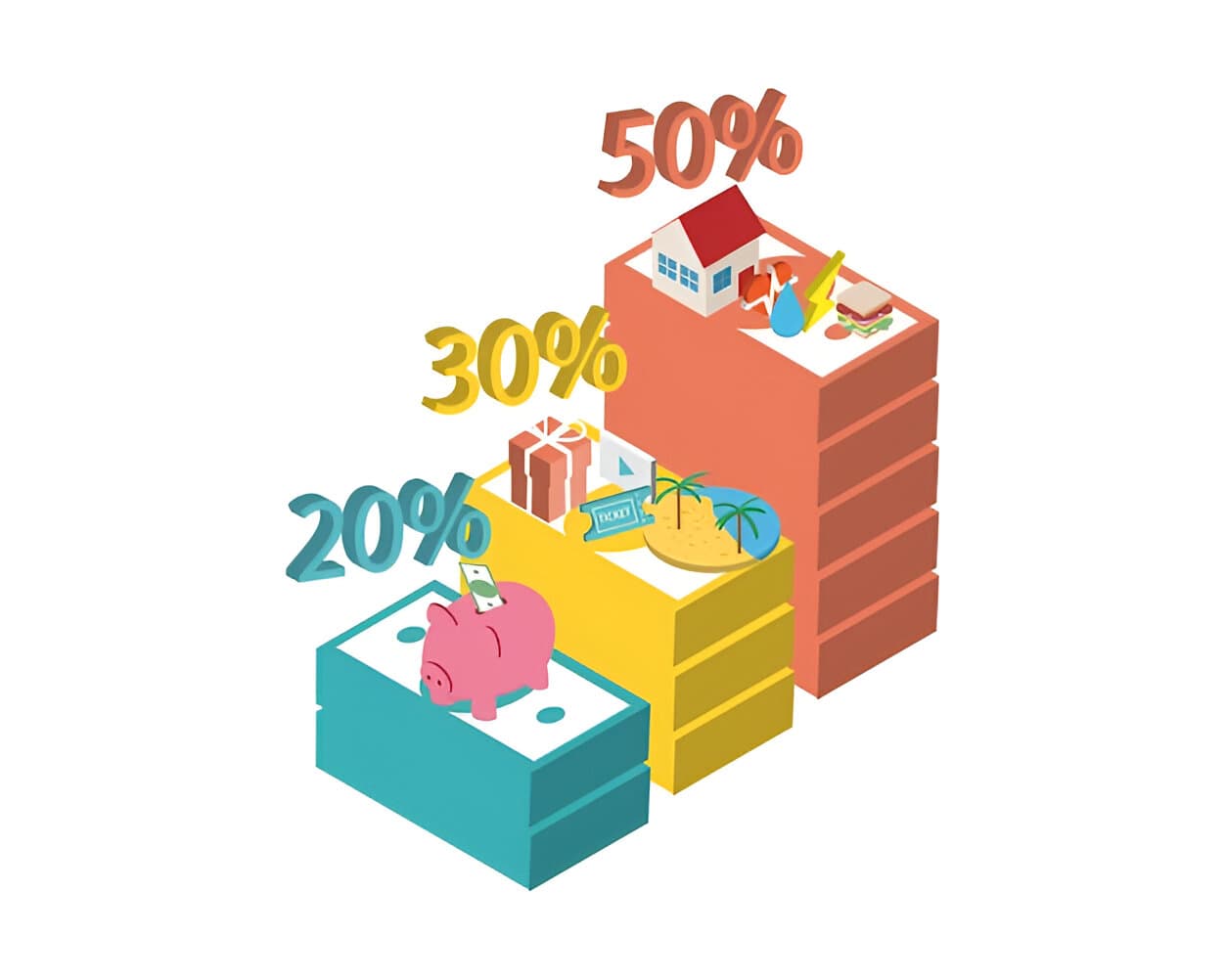
Best Budgeting Strategies for Students
College life brings exciting opportunities and challenging financial realities. Between tuition costs, textbooks, and daily expenses, managing money becomes a crucial skill. Learning effective financial habits now sets you up for lifelong success.
If you're living on campus or commuting from home, smart budgeting helps stretch every dollar. By prioritizing expenses and setting realistic goals, you can make the most of your resources.
Must Reading: Beginner Investment Tips for Students
Why Student Budgeting Matters More Than Ever
Student debt reached $1.75 trillion in 2024, affecting over 43 million borrowers. Rising costs make budgeting essential, not optional.
Students who budget regularly report:
- 67% less financial stress
- Better academic performance
- Stronger money management skills after graduation
- Reduced reliance on credit cards
Starting these habits early creates a foundation for financial independence.
Track Your Money Flow

Know What's Coming In
List all income sources:
- Part-time job wages
- Financial aid refunds
- Family support
- Scholarship money
- Side hustle earnings
Calculate your monthly total. This becomes your spending limit.
Identify Where Money Goes
Track expenses for two weeks. Use apps like Mint, PocketGuard, or even a simple notebook.
Common student expense categories:
- Fixed costs: Rent, meal plans, insurance
- Variable costs: Food, transportation, entertainment
- Educational: Books, supplies, lab fees
- Personal: Clothing, phone bill, subscriptions
Many students discover they spend 30-40% more than expected on "small" purchases.
The 50/30/20 Student Budget Method

This proven framework adapts perfectly for student life:
50% for Needs
Essential expenses you cannot avoid:
- Housing costs
- Required meal plans
- Transportation to class
- Basic phone service
- Required textbooks and materials
30% for Wants
Enjoyable but non-essential spending:
- Dining out with friends
- Entertainment and movies
- Streaming services
- Fashion purchases
- Coffee shop visits
20% for Financial Goals
- Emergency fund building
- Paying down student loans
- Saving for post-graduation expenses
- Building credit responsibly
Adjust percentages based on your situation. Students with higher fixed costs might use 60/25/15 instead.
Smart Saving Strategies That Actually Work
The $5 Challenge
Save every $5 bill you receive. Most students save $300-500 annually without feeling the pinch.
Round-Up Apps
Apps like Acorns round purchases to the nearest dollar and invest the difference. Spending $3.67 on coffee becomes $4.00, with $0.33 saved automatically.
Semester Savings Goals
Set specific targets:
- $200 for spring break
- $150 for holiday gifts
- $100 for job interview expenses
Break these into weekly amounts. Saving $50 monthly requires just $12.50 weekly.
High-Yield Student Savings
Online banks offer 4-5% annual interest in 2025, compared to 0.1% at traditional banks. Your $1,000 emergency fund earns $40-50 annually instead of $1.
Practical Expense Reduction Tips

Textbook Strategies
- Rent textbooks from Chegg or Amazon
- Buy used copies from upperclassmen
- Check library reserves for required readings
- Share textbooks with classmates
- Sell books immediately after semester ends
Average savings: $400-600 per year
Food Budget Optimization
- Cook simple meals in dorm kitchens
- Buy generic brands (30-50% cheaper)
- Shop with a list to avoid impulse purchases
- Use campus food pantries if available
- Take advantage of free campus events with food
Transportation Savings
- Use student discounts for public transit
- Bike or walk when possible
- Carpool with classmates
- Consider ride-sharing for occasional trips
- Maintain your car properly to avoid costly repairs
Technology and Subscriptions
- Share streaming services with family or roommates
- Use free software alternatives (Google Docs vs. Microsoft Office)
- Take advantage of student discounts (Spotify, Adobe, etc.)
- Buy refurbished electronics
- Cancel unused subscriptions monthly
Building Your Emergency Fund

Financial experts recommend setting aside enough savings to cover 3-6 months of living expenses in an emergency fund. Students need at least $500-1,000 for unexpected costs:
- Medical expenses
- Car repairs
- Replace stolen items
- Emergency travel home
- Technology failures during finals
Start with $25 monthly contributions. Reaching $300 provides peace of mind for most emergencies.
Smart Credit Building
Student Credit Cards
Use responsibly to build credit history:
- Keep balances under 30% of credit limit
- Pay full balance monthly
- Set up automatic payments
- Start with secured cards if needed
Alternative Credit Building
- Become an authorized user on parents' cards
- Use credit-builder loans
- Pay rent and utilities on time
- Consider services like Experian Boost
Good credit scores (700+) save thousands on future car loans and mortgages.
Technology Tools for Budget Success
Best Budgeting Apps for Students
Mint: Free comprehensive tracking
YNAB (You Need A Budget): Free for students with .edu email
PocketGuard: Prevents overspending
Goodbudget: Digital envelope method
Personal Capital: Investment tracking
Banking Features to Use
- Automatic savings transfers
- Account alerts for low balances
- Mobile check deposits
- Fee-free ATM networks
- Budgeting tools within banking apps
Income Boosting Opportunities
On-Campus Jobs
- Research assistantships
- Tutoring centers
- Campus recreation facilities
- Library positions
- Food service
Benefits include convenient location and flexible scheduling around classes.
Remote Work Options
- Virtual tutoring
- Content writing
- Social media management
- Data entry
- Customer service
Remote work offers higher hourly rates and location flexibility.
Gig Economy
- Food delivery driving
- Task-based work (TaskRabbit)
- Freelance services (Fiverr)
- Pet sitting/dog walking
- Selling items online
Gig work provides income flexibility around academic schedules.
You may also like: Budgeting Tips for New Parents
Advanced Budgeting Techniques
The Envelope Method (Digital Version)
Allocate specific amounts for different categories using separate savings accounts or budgeting apps. This enables individuals to manage their expenses more effectively and stay on track financially.
Cash-Only Method
Use physical cash for all purchases to avoid overspending. Withdraw predetermined amounts each week or month for specific categories such as groceries or entertainment and only use
Zero-Based Budgeting
Yes, give every dollar a clear purpose before the month starts. Income minus all assigned expenses should equal zero.
Pay Yourself First
Save money immediately when income arrives, before paying any expenses. This ensures savings happen automatically.
Preparing for Post-Graduation Finances
Job Search Budgeting
Set aside money for:
- Professional clothing
- Resume printing
- Interview travel
- Career fair attendance
- Networking events
First Apartment Funds
Start saving for:
- Security deposits
- First month's rent
- Basic furniture
- Kitchen supplies
- Utility setup fees
Student Loan Preparation
Understand your loan terms:
- Grace period length
- Interest rates
- Repayment options
- Income-driven payment plans
- Forgiveness programs
Common Budgeting Mistakes to Avoid
Underestimating Expenses
Students typically underestimate costs by 25-30%. Add buffer room to your budget categories.
Ignoring Small Purchases
$5 daily coffee purchases cost $1,825 annually. Small amounts add up quickly.
Not Planning for Irregular Expenses
Budget for textbooks, holiday gifts, and semester breaks throughout the year.
Lifestyle Inflation
Avoid increasing spending every time income increases. Bank the extra money instead.
Neglecting Financial Education
Continue learning about personal finance through books, podcasts, and courses.
Making Budgeting Sustainable
Start Small
Begin with tracking expenses for one week. Gradually add budgeting categories and savings goals.
Find Your Motivation
Connect budgeting to personal goals like study abroad, graduate school, or post-graduation independence.
Build Flexibility
Allow some discretionary spending for social activities and personal enjoyment.
Review and Adjust
Monthly budget reviews help identify what's working and what needs adjustment.
Celebrate Progress
Acknowledge when you meet savings goals or successfully stick to spending limits.
Conclusion
Implementing the best budgeting strategies for students creates habits that last a lifetime. Start with one or two techniques that appeal to you most. Track your spending, set realistic goals, and adjust as needed.
Remember that budgeting isn't about restricting yourself, it's about making intentional choices with your money. These skills help you graduate with less debt, better credit, and confidence in your financial abilities.
Your future self will thank you for starting these practices today. Every dollar saved and every smart financial decision builds toward the independence and security you want after graduation.
Frequently Asked Questions
Can budgeting really make a difference in my financial future?
Absolutely! Budgeting allows you to have control over your spending and helps you save for the things that matter most. By setting goals and staying accountable, you can graduate with less debt, better credit, and more financial security.
How do I get started with budgeting?
The first step is to monitor and record your income and expenses. This will give you a clear picture of where your money is going and how much you have left over for saving and spending. There are many budgeting tools and apps available to help you with this process like Mint, YNAB, and Personal Capital.
How can I save money as a student on a tight budget?
Prioritize essential expenses, use student discounts, cook meals at home, and shop for second-hand items. Look for free or low-cost events and resources available on campus or in your community.
What are some long-term financial goals that students should consider?
Students should consider saving for emergencies, building an emergency fund, paying off student loans, and investing in their future. They can also start planning for big life expenses such as buying a house or starting a business after graduation.
It's important to have both short-term and long-term financial goals to ensure stability and growth in the future.